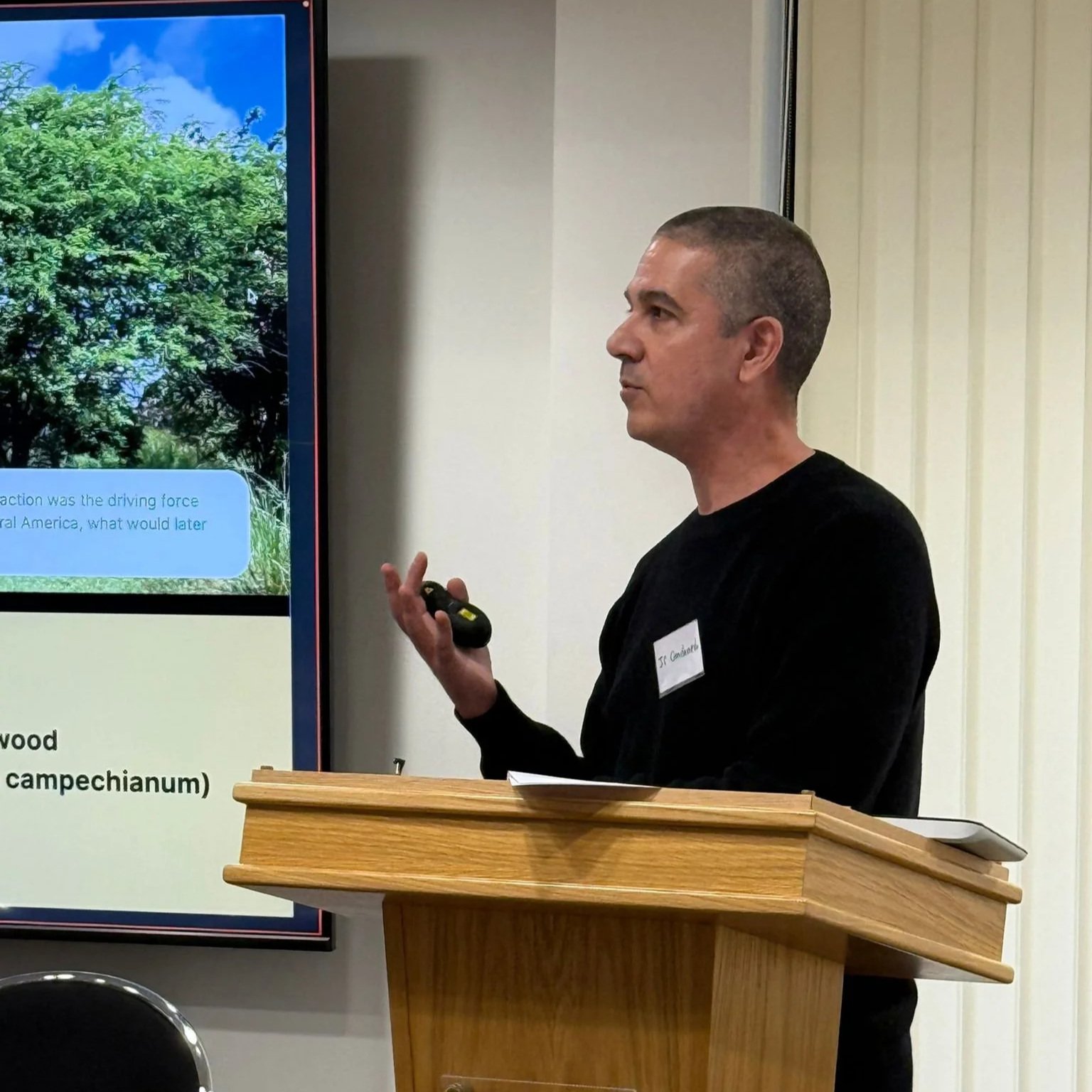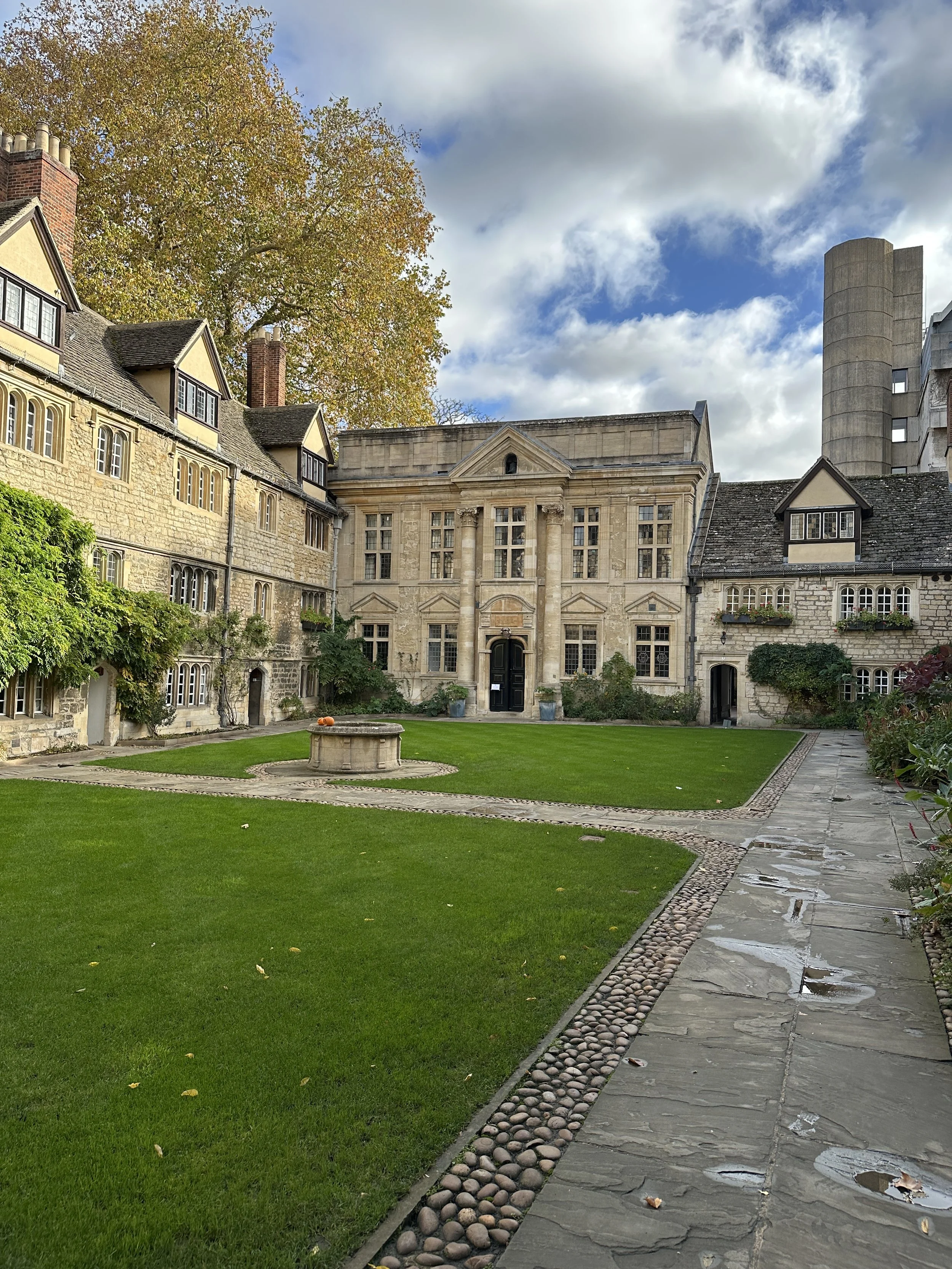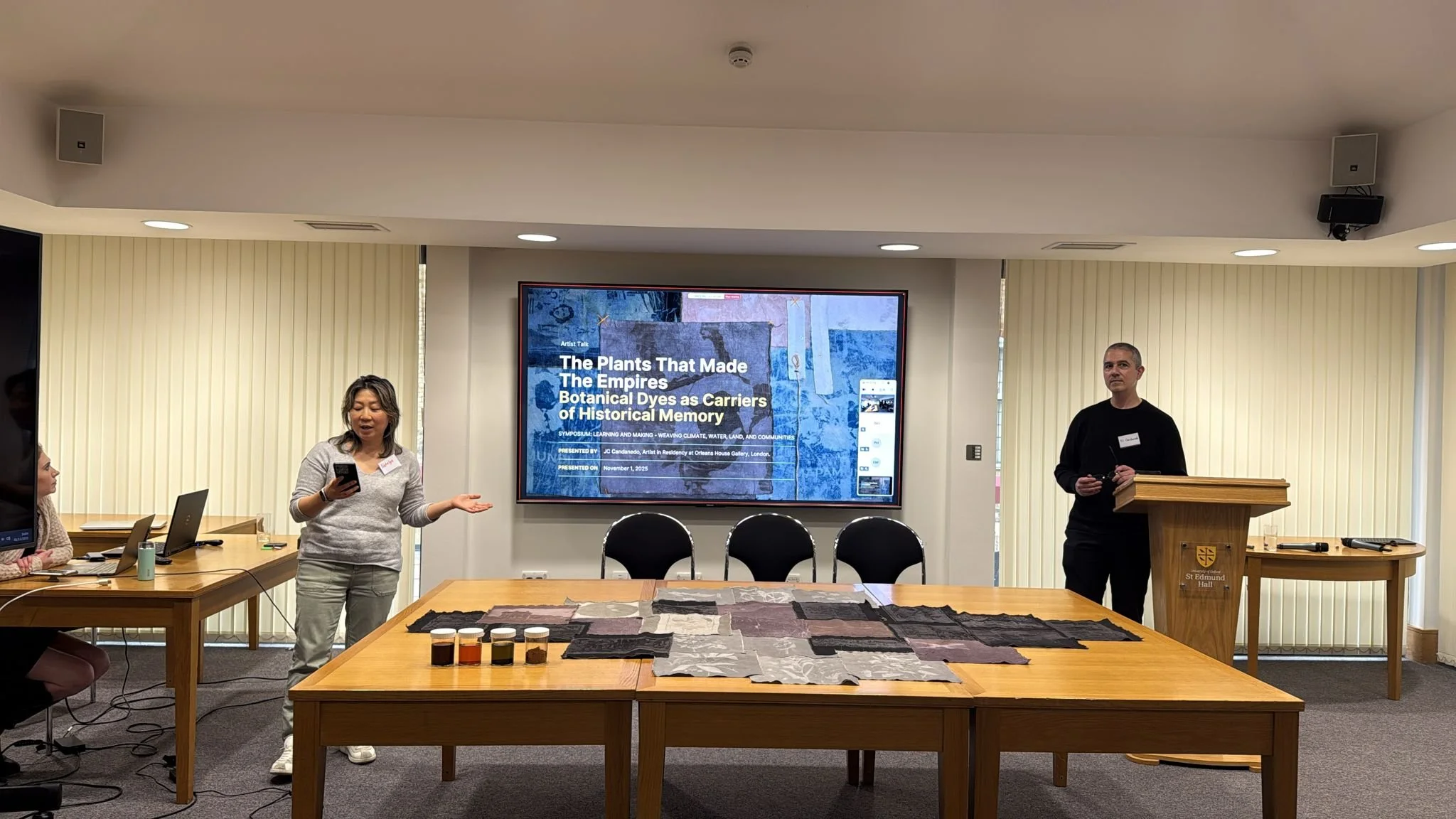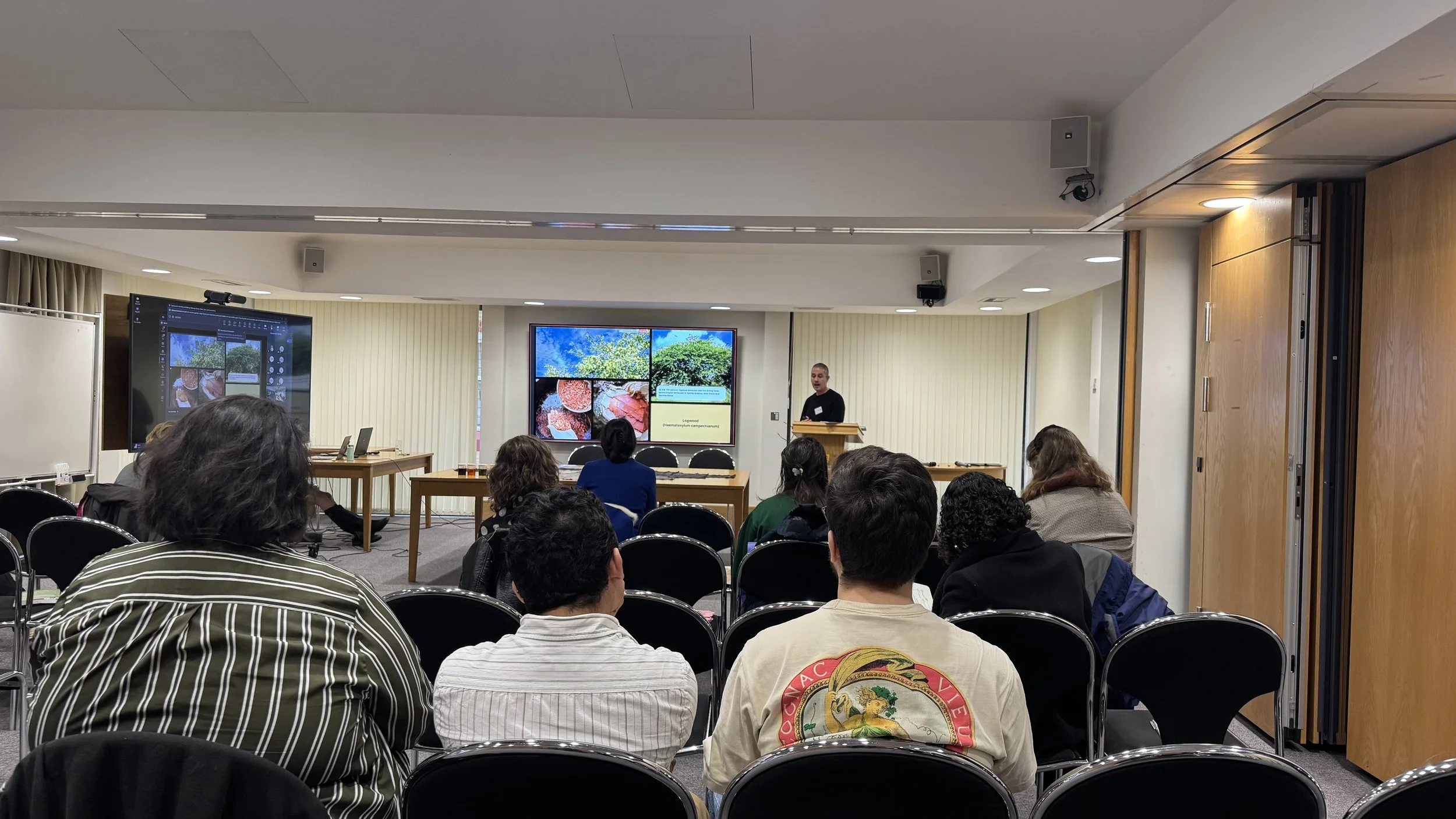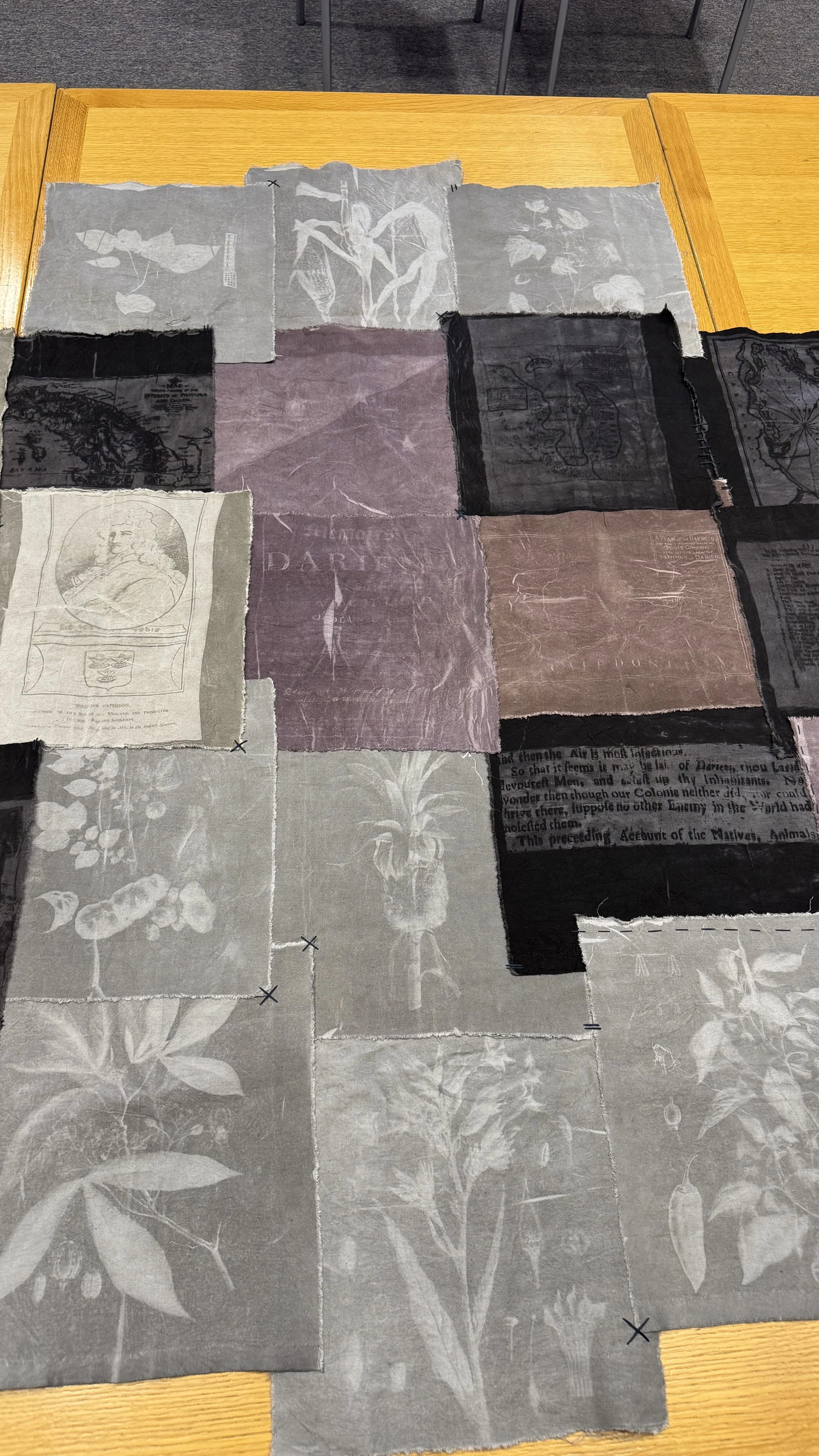On November 1st, I was invited to give a talk at St Edmund Hall, University of Oxford, during the Symposium "Learning and Making: Weaving Climate, Water, Land, and Communities," in which artists, activists and academics explored how we can reframe our relations to water and land through learning and making.
In my talk entitled The Plants That Made the Empires: Botanical Dyes as Carriers of Historical Memory, I spoke about my artistic practice and experimentations within my residency at Orleans House Gallery in London, which combined cyanotype processes with Pre-Columbian botanical dyes, while also reflecting upon how these botanical materials can function as cultural agents reminding us of the ongoing impact of colonialism on biodiversity and contemporary society.
During the day, we heard powerful talks that encouraged us to think outside the box when putting together our climate action strategies:
Dr Hilary Cremin, in conversation from Olga Mun, argued for Rewilding Education, calling for a radical, system-wide reinvention of education as an adaptable ecosystem in a less predictable and measurable way, but far more suitable for shaping the adults of tomorrow.
We learned the importance of including voices that are often excluded from conversations around the climate crisis such as the voices of children, as argued by Dr Amelia Farber,
How Conny Kawohl, founder of Glacierwatch, is spreading hope and optimism through climate action campaigns that can help us fight solastalgia (climate grief) - the sorrow felt for the loss of ecosystems, species, and futures we hoped for,
Engaging in creative actions where we can restructure our visions of humans as part of, not separate from, the ecological system that makes the world, as shared by Emmanuel León Bobadilla,
We heard from Gisselle Girón Casas on how Gianine Tabja, a Peruvian Palestinian artist, responds to geological research through her artistic work that emphasizes that rocks have much to say, challenging views on the temporality of life, territories and the future as a unidirectional and finite journey,
And finally, we enjoyed a screening of the film The Song of Lake Balkhash and were inspired by the work of Aigerim Kapar, founder of Artcom Platform, who in conversation with Dr Richard Bater spoke about her efforts to save Lake Balkhash in Kazakhstan from shrinking and the environmental issues it faces.
Thank you so much to Emmanuel León Bobadfilla for inviting me and to the rest of the organisers: Olga Mun, Dr Amelia Farber, Dr Natalya Hanley and Aigerim Kapar.
Honoured to have had the opportunity to share the space with Dr Hillary Cremin, Conny Kawohl, Gisselle Girón, Gianine Tabja and Dr Richard Bater.
Subscribe to my blog posts here!
